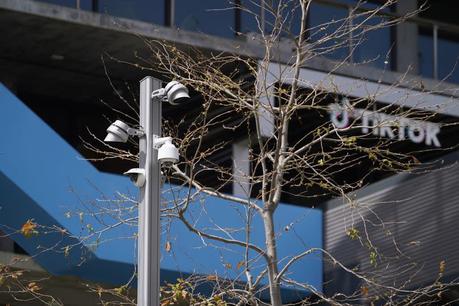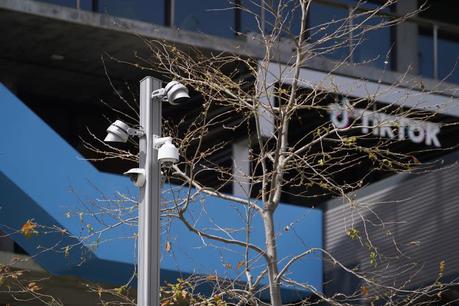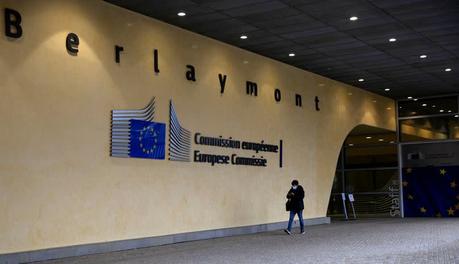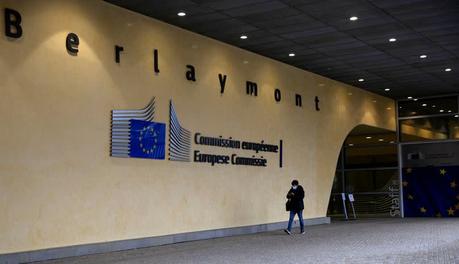As the EU's new flagship technology laws, the Digital Services Act and the Digital Markets Act, come into full effect, Big Tech is working hard to knock them down.
From today, the Digital Markets Act (DMA) will become fully applicable, following its counterpart the Digital Services Act (DSA) on February 17.
But as the EU's new technology laws come into full effect, tech companies like Apple, Amazon, Meta and TikTok are already undermining them at every opportunity.
To undermine these new regulations, tech companies have filed a number of lawsuits against the European Commission and attempted to weaken the rules with malicious enforcement that protects their profits at the expense of their users.
Malicious compliance pretends to follow the letter of the law in a way that ignores or otherwise sabotages the law's intentions.
That's why civil society organizations like EDRi are holding tech companies to account for their actions and supporting the European Commission in making full use of its supervisory powers.
The DSA regulates how social media platforms deal with potentially illegal online content uploaded by their users, without unnecessarily restricting people's freedom of expression.
The DMA contains strong obligations and prohibitions to prevent these tech companies from monopolizing key markets such as smartphones, chat apps, app stores and more.
Technology companies are not happy: they prefer profits over people
As the European Commission prepares to enforce Big Tech's compliance with the new rules, Amazon, Meta, TikTok and Apple are emptying their pockets in an attempt to thwart that task.
In July, Amazon was among the first to sue the European Commission over the DSA. The company, which is worth half a trillion dollars and has hundreds of millions of European users every month, argues in court that it cannot possibly be targeted by the DSA's key obligations because they were conveniently aimed at companies whose primary focus is online advertising business model. , not for Amazon.
The story continues
Of course, the DSA's obligations also apply to very large online platforms such as Amazon, and explicitly extend to e-commerce sites regardless of how they make their money.


Not long after, Meta and TikTok announced they would take the European Commission to court over the annual monitoring fee they must pay under the DSA.
This obligation is one of many victories that digital rights organizations such as EDRi and other civil society groups have achieved during the drafting of the law. It is a matter of fairness that Big Tech bears the costs that society must invest to limit the threats that these companies pose, an estimated 45 million euros per year.
Based on the European Commission's calculations, Meta ($47 billion in annual profits) would have to pay 11 million euros, while TikTok owner ByteDance ($2 billion in annual profits) is expected to pay 3.9 million euros.
Let's do the math: both amounts are well below the maximum limit of 0.05% of their annual profits. Although these amounts are just pocket money for the technology companies, they represent fair and indispensable financial compensation that makes the government's enforcement work possible.
Apple is also not without its faults
Apple, on the other hand, is not trying to undermine the new regulations through the courts, but through malicious compliance. One of the main goals of the DMA is to break open Apple's tightly controlled operating system and app store and allow users to freely decide which apps they want to install on their iPhone and from where.
Instead of complying with this new requirement, however, Apple has announced a cunning plan that would technically allow competitors to offer alternative app stores and web browsers on iPhones and iPads, but would in no way compromise the company's power as a gatekeeper over people's devices would decrease.
Instead of enabling true software freedom for its users, Apple continues to monitor every app people install on their phones and levy a fee on their developers, ostensibly to protect users.


Instead of enabling true software freedom for its users, Apple continues to monitor every app people install on their phones and levy a fee on their developers, ostensibly to protect users.
Developers have called Apple "a mafia" and described their attempt at malicious DMA compliance as "abusive," "extortion," and "ridiculously punitive." The European Commission must crack down on this attempt to circumvent the DMA's goal of reducing the power of gatekeepers.
It is fair to say that legal remedies are open to everyone. However, some of these lawsuits brought by tech companies appear to have no merit other than slowing down the European Commission's enforcement work, stifling the potential of the DSA and the DMA to reduce Big Tech's market power, and damaging the positive image of the two laws in the world. public.
Will the European Commission hold technology companies to account?
Despite legal threats from the industry, the European Commission's enforcement teams have made a promising start.
Last year, the team responsible for the DMA organized a series of well-organized public workshops with experts and regulated companies to discuss how best to apply some of the law's trickier rules.
Unlike similar workshops in the past, these were not dominated by industry lobbyists, but included a number of important civil society voices, including from the free software and digital rights communities.
The European Commission must stand firm against their attempts to delay, pressure and destroy Europe's most important digital laws, and the digital rights community stands ready to hold them to account.


More importantly, when the DSA came into effect, the European Commission acted quite quickly and opened formal investigations into X (formerly known as Twitter) and TikTok for possible non-compliance with their respective obligations under the DSA.
The European Commission is investigating, among other things, whether the two platforms have failed to meet their obligations to provide effective content moderation, improve the transparency of their surveillance advertising systems and stop using addictive design and dark patterns.
Civil society's struggle for accountability and justice
Just last week, EDRi, together with other expert NGOs, provided evidence to the European Commission showing that Microsoft's LinkedIn networking platform may be in breach of the DSA's new ban on profiling people who use sensitive personal data for ad targeting.
The very fact that the DSA includes such a ban is a significant milestone, recognizing the limits of consent in the context of the surveillance advertising industry.
When the DSA and DMA were passed in 2022, major technology industry associations hailed the new laws as significant achievements. It's time for Big Tech companies to stop pouting and take responsibility.
The European Commission must stand firm against their attempts to delay, pressure and destroy Europe's most important digital laws, and the digital rights community stands ready to hold them to account.
Jan Penfrat is Senior Policy Advisor at the European Digital Rights Network (EDRi). At Euronews we believe that all opinions matter. Contact us at [email protected] to send pitches or submissions and join the conversation.